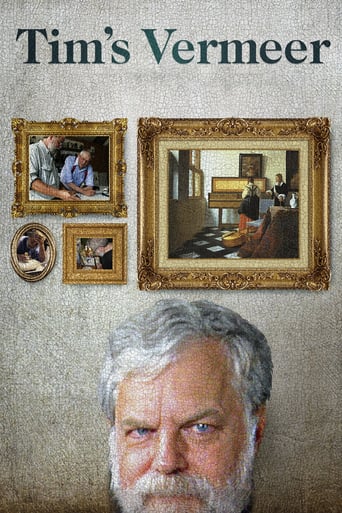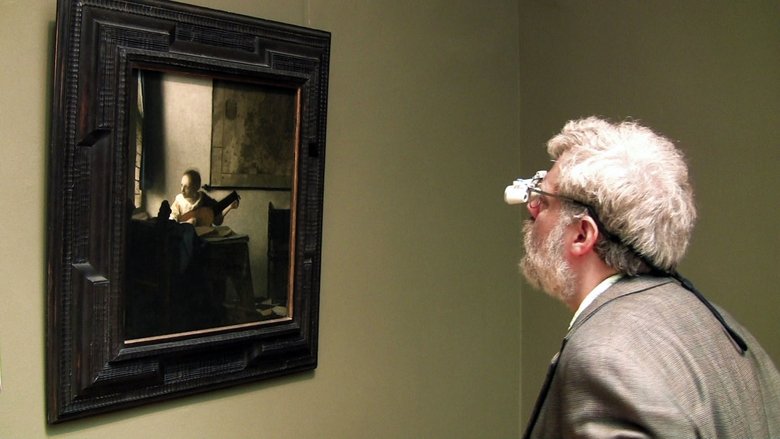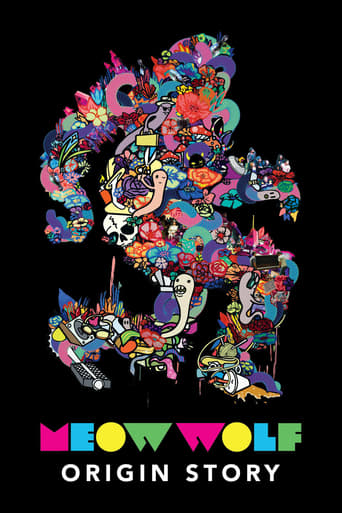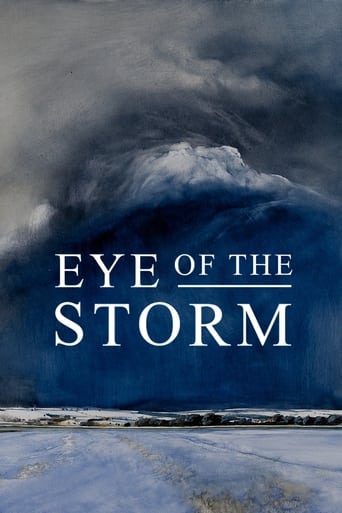Tim's Vermeer (2013)
Tim Jenison, a Texas based inventor, attempts to solve one of the greatest mysteries in all art: How did Dutch Master Johannes Vermeer manage to paint so photo-realistically 150 years before the invention of photography? Spanning a decade, Jenison's adventure takes him to Holland, on a pilgrimage to the North coast of Yorkshire to meet artista David Hockney, and eventually even to Buckingham Palace. The epic research project Jenison embarques on is as extraordinary as what he discovers.
Watch Trailer
Cast
Similar titles
Reviews
A Masterpiece!
While it doesn't offer any answers, it both thrills and makes you think.
This is a small, humorous movie in some ways, but it has a huge heart. What a nice experience.
The movie really just wants to entertain people.
This is the first time I write a review in IMDb, and first things first, sorry for my bad English. This documentary -reccomended by a friend who has a degree in Fine Arts- is made, in my point of view, by and with people who doesn't know nothing about art, and in particular, painting. There's no real mystery in the art of Vermeer. The only mystery to me is how much money has this Tim whatever to make his whim reality. For me, this documentary doesn't has anything to do with the art of painting. It's the mere tale of a "savant" with an intelligence of and autistic, so much money in his pockets and a bit of boredom who decides to copy a Vermeer's painting. That's all. The scenes where shows his "technique" and results to their ass-lickers are hilarious and ridiculous. Seeing an extremely senile David Hockney bowing his head in agreement with the stupid theories of "Tim" are embarrassing. And the final "painting" is horrible as well. Is the painting of somebody who's not a painter -he says it-, a picture without soul. I'm an "aficionado" of the history of art and some of the "mysteries" of the documentary are not. For example, that Vermeer didn't leave any traces of retries or sketches in the canvas, so what? All the venetian painters of the XV and XVI had the tradition of painting directly in the canvas, without previous sketches (Tintoretto, Tiziano, Veronés, Giorgione, the Bellini brothers...), and no one has hit the roof about that. Oh, excuse me, there's a recent crappy best seller and a movie with Scarlett Johanson about the life of Vermeer... That explains all. The inhabitants of United States -not Americans, you're not the only people living in this continent- are very peculiar. It seems they see us -the europeans- as martians or something. I don't understand their talent in technical stuff and, opposite of that, their absolute ignorance about the most basic things. In this case the simplest conclusion is this: Vermeer used the camera obscure, just like the most Flemish painters of the XVIIth century. Period. The only detail is that he had more talent than most of the rest. I would like to see if Tim could "copy" the Garden of Delights of El Bosco. I don't think so. You don't become a genius with a couple of lenses and mirrors. By the way, as documentary, is below average. I recommend the "Palette" series by Alain Jaubert.
We live in the age of technology. We don't normally think of this as a time producing great artists the way they proliferated in earlier times.One of the most fascinating types of art, to me anyway, are those of the Dutch. So much detail, particularly in the works of Vermeer.Penn Jillette, part of the magic team of Penn & Teller, introduces us to inventor Tim Jenison, who puts forward the theory that Vermeer employed technological/scientific means to paint his incredibly detailed artwork. He attempts to figure out how Vermeer was able to paint in such great detail, and reproduces everything available to Vermeer in his time, to recreate his studio, and finally to paint "The Music Lesson."Jenison postulates that Vermeer possibly used camera obscura and a small mirror to achieve the look of his work.No way to prove this as Vermeer did not leave any notes, including notes about achieving the colors of his paint. However, Jenison makes a very strong case.This is a fantastic and absorbing documentary, and gives a possible answer for another aspect of Vermeer's work that wasn't brought up in the discussion. Jenison's recreation using these techniques took months. Vermeer did not leave behind a great many paintings. Granted he died young (43, probably not that young in those days) but still, if it took so long to paint these pictures, perhaps that is why there are so few of them. His lack of paintings was mentioned, but not connected with this technique. I think this is yet further evidence that he may in fact used these painstaking methods.This is a controversial subject because some art historians feel it blemishes Vermeer's work and makes him a cheat. Many feel that art and science must forever stay separate.Jenison and others, such as David Hockney, argue that it is not cheating to use or even invent techniques to help his work. The commitment, the beauty, the detail, the color, all stand testament to the artistry of Vermeer. The fact that it can be replicated in modern times doesn't diminish the work.A wonderful documentary that deserves to be seen.
If you, like me, enjoy technology and creativity. This is a must see Documentary about a man who set off to make a 'Vermeer'. With no particular skills, but with time and money to spend, he reinvented and discovered the Artist's way. For me the 'revealing' of Vermeer was far from a disappointment. Instead for me it brings Vermeer straight into the age of Enlightenment.Art, at it's best for me is always a combination of smart and ingenious, it has to do with craftsmanship, with guts and persistence and a bit of Eureka. During the Age of Enlightenment in the Netherlands of the 17th Century, the two disciplines - Science and Art - just had to meet. As Jenison points out in the Documentary, this is exactly what happened here. But maybe there is even more..Born in 1632, Vermeer shares the same birth year with another famous man called Baruch Spinoza. Spinoza worked in The Hague, a city that is only a stone throw away from Delft, which being the city where Johannes Vermeer lived, worked and died.As Tim Jenison so brilliantly shows, lenses and mirrors play an important role in the work of Vermeer. Not only on his paintings, but also in the way he produced these paintings.Wouldn't it be a great thought that Baruch Spinoza, who worked as a lens maker for a living, contributed as such to the paintings of Johannes Vermeer. Maybe they even talked about light, perspective and geometry during the tedious grinding of the lens. And that picture just made my day :-)
Nowadays, realistic digital images can be achieved through all kinds of technological tricks and specialized software. That's why I'm amazed by the capacity from painters such as Johannes Vermeer to achieve practically photo-realistic images 4 centuries ago, employing the archaic tools from the craft: pigments, oils, brushes and canvas. I don't know too much about art, but there's no need to be a connoisseur in order to appreciate the perfection from paintings such as The Art of Painting, The Little Street and Woman Holding a Balance (not to mention Girl with a Pearl Earring, which inspired an excellent movie with the same title that considerably extended Vermeer's fame). And now, in 21st century, inventor Tom Jenison (founder of the company NewTech, whose most famous creations are the animation software Lightwave and the video switcher Tricaster) is an authentic connoisseur, and his curiosity about Vermeer's techniques made him to conceive a possible solution to the mystery of the realism achieved in his paintings. It is known that many artists in that period employed the "camera obscura" (a dark room with a small hole through which an inverted image from the exterior is projected) as a guide to make the sketch of the person or landscape to be painted; but none of that explains Vermeer's extraordinary handling of illumination, atmosphere and detail. What is more, there aren't any documents which describe his techniques, and there aren't even any records of his studies, whether they were formal or as a learner from some other master painter. In summary: an authentic historical mystery accentuated by the value and beauty from his artistic legacy... until Jenison conceived an ingenious system of lenses and mirrors which, in his own words, "turns the artist into a machine", and allows him reality without the need of possessing particular talent... just inflexible discipline and dedication. But all this will just be an interesting theory, until Jenison will be able to recreate the painting The Music Lesson. The irreverent duet of magicians Penn (Jillette) and Teller are friends of Jenison's, and when they found out about the unusual project, they decided to make a documentary about it, alternating interviews to experts (such as David Hockney and Philip Steadman), testimonies from aficionado painters (such as actor Martin Mull) and "talking heads" such as Jillette himself, whose long relationship with Jenison humanizes the documentary, bringing personal anecdotes and videos which illustrate us about the inventor's tenacity and geniality. I will refrain myself from revealing Jenison's technique, because it deserves to be seen in order to appreciate its elegant simplicity, and at the same time, the necessary ingenuity to design it. Besides, like a good magic trick, it's better not to know everything from the beginning, in order to enjoy the surprise and suspense from the project. Will Jenison be able to recreate the masterpiece? Or will it be a simple exercise of compulsive obsession? The result doesn't matter as much as seeing a genius trying to emulate another genius who lived 4 centuries ago. So, even though I wouldn't consider Tim's Vermeer an excellent documentary, I liked it pretty much, and I can recommend it to those who like art, technology or the simple pleasure of chasing an obsession until its last consequences.










